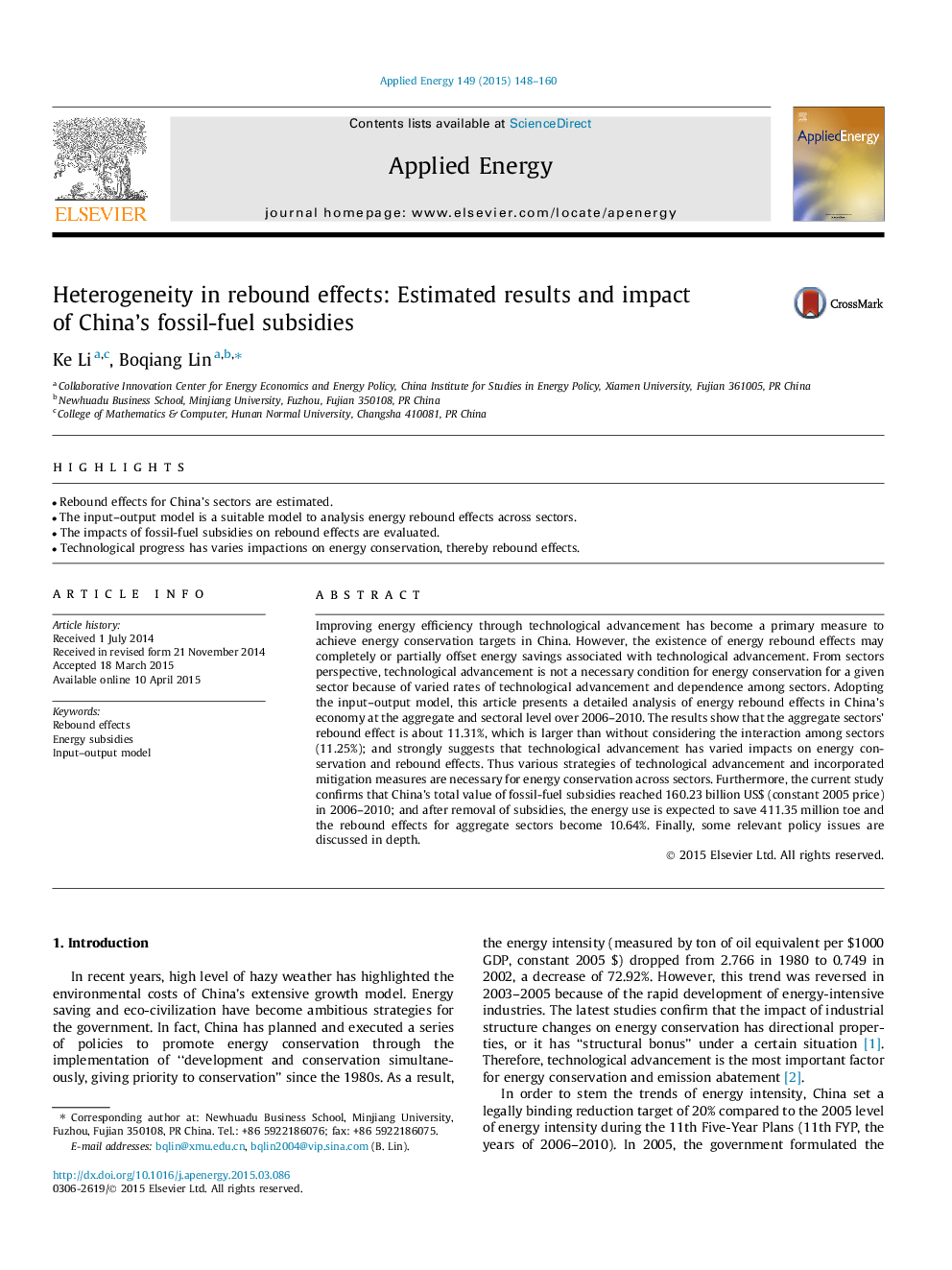| کد مقاله | کد نشریه | سال انتشار | مقاله انگلیسی | نسخه تمام متن |
|---|---|---|---|---|
| 6687135 | 501876 | 2015 | 13 صفحه PDF | دانلود رایگان |
عنوان انگلیسی مقاله ISI
Heterogeneity in rebound effects: Estimated results and impact of China's fossil-fuel subsidies
ترجمه فارسی عنوان
عدم همبستگی در تأثیرات بازگشت: نتایج تخمینی و تأثیر یارانه های سوخت فسیلی چین
دانلود مقاله + سفارش ترجمه
دانلود مقاله ISI انگلیسی
رایگان برای ایرانیان
کلمات کلیدی
اثرات بازگشتی، یارانه های انرژی، مدل خروجی ورودی،
موضوعات مرتبط
مهندسی و علوم پایه
مهندسی انرژی
مهندسی انرژی و فناوری های برق
چکیده انگلیسی
Improving energy efficiency through technological advancement has become a primary measure to achieve energy conservation targets in China. However, the existence of energy rebound effects may completely or partially offset energy savings associated with technological advancement. From sectors perspective, technological advancement is not a necessary condition for energy conservation for a given sector because of varied rates of technological advancement and dependence among sectors. Adopting the input-output model, this article presents a detailed analysis of energy rebound effects in China's economy at the aggregate and sectoral level over 2006-2010. The results show that the aggregate sectors' rebound effect is about 11.31%, which is larger than without considering the interaction among sectors (11.25%); and strongly suggests that technological advancement has varied impacts on energy conservation and rebound effects. Thus various strategies of technological advancement and incorporated mitigation measures are necessary for energy conservation across sectors. Furthermore, the current study confirms that China's total value of fossil-fuel subsidies reached 160.23 billion US$ (constant 2005 price) in 2006-2010; and after removal of subsidies, the energy use is expected to save 411.35Â million toe and the rebound effects for aggregate sectors become 10.64%. Finally, some relevant policy issues are discussed in depth.
ناشر
Database: Elsevier - ScienceDirect (ساینس دایرکت)
Journal: Applied Energy - Volume 149, 1 July 2015, Pages 148-160
Journal: Applied Energy - Volume 149, 1 July 2015, Pages 148-160
نویسندگان
Ke Li, Boqiang Lin,
